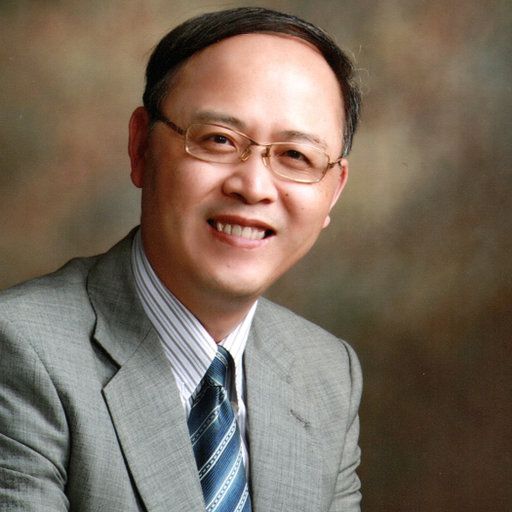Novel Anti-HER2 Agent Shows Early Clinical Efficacy in HER2+ Breast Cancer
In an interview with Targeted Oncology, lead author Xichun Hu, MD, PhD, discussed A166 and its impact on HER2-positive breast cancer.
Xichun Hu, MD, PhD

A166, an antibody drug conjugate composed of a novel cytotoxic drug site-specifically conjugated to an anti-HER2 antibody, has demonstrated promise in HER2-expressing solid tumors.
The phase 1 Chinese study looked at the agent in patients with HER2-expressing locally advanced or metastatic solid tumors. The agent was tested at dose levels between 0.1 mg/kg to 6.0 mg/kg, which was determined to be the recommended phase 2 dose.
In total 57 patients, with a median age of 53, were enrolled. Fifty-one were HER2-positive. Over sixty percent had 5 or more prior lines of therapy. No dose limiting toxicities were observed. Treatment-related adverse events were reported in 96.5% of patients, with 31.6% being grade 3 or higher. These included epitheliopathy (73.7%), vision blurred (59.6%), peripheral sensory neuropathy (26.3%), dry eye (21.1%), anemia (19.3%), and hyponatremia (19.3%).
In an interview with Targeted OncologyTM, lead author Xichun Hu, MD, PhD, the director of the Department of Medical Oncology at Fudan University Shanghai Cancer Center, discussed A166 and its impact on HER2-positive breast cancer.
TARGETED ONCOLOGY: Can you explain the mechanism of action of A166?
HU: This drug, A166, is an antibody drug conjugate. It's for HER2-positive breast cancer. So, this drug will use high tech knowledge to connect to anti-microtubular agents. It's specially developed for patients with HER2-positive breast cancer. So, we recruit patients with heavily pretreated metastatic breast cancer.
Can you discuss the trial design?
We recruited patients with heavily pretreated metastatic breast patients. This is a phase 1 trial; we use the 3 + 3 approach. Dose cohorts were expanded at 4.8 and 6.0 mg/kg. At the 6 mg/kg, the object response rate reached nearly 70%. So, it's a highly potent agent. Regarding the toxicity with didn't find any chemotherapy related myelosuppression, nausea, and vomiting. But there was some eye toxicity, and it was mostly grade 1/2. In this phase 1 trial we didn't reached dose-limiting toxicities. The suggested dose is 6 mg/kg, but this is not the maximum tolerated dose.
What effect did the drug have in patients with HER2-positive cancer specifically?
The object response rate increase that with a dose increase. So, the at the dose of 6.0 mg/kg, the objective response rate was nearing 70%. So, it's a highly potent agent.
Is there future research planned around A166?
That's a really interesting question. With this highly potent agent, we want to start registration in a phase 2 clinical trial in patients who failed trastuzumab and tyrosine kinase inhibitors. Most of these patients are third line or more, maybe fourth line. Patients have been exposed to all these drugs. We want to start phase 2 registration, we want to get approval, and then design another confirmatory trial.
This trial was different from American trials, because the T-DM1 was still not approved in China. So, most of the patients have not been treated with a T-DM1. So, the situation is a little bit different. We want to try this drug in patients who have been treated with the T-DM1 or other antibody drug conjugates.
What is the biggest unmet need in HER2-positive breast cancer right now?
Yeah, although we have a lot of drugs, 8 drugs have been approved in the USA, but we see patients that are still not cured of their disease. The majority of patients still develop the resistance, that's the problem, that's a huge unmet need. I am interested in the data of T-DM1 and other drugs. I am also interested in bispecific antibodies, such as the ones targeting PD-1 and HER2. It's interesting area.
REFERENCE:
Hu X, Zhang J, Liu R, et al. Phase I study of A166 in patients with HER2-expressing locally advanced or metastatic solid tumors. J Clin Oncol. 2021;39(15):1024. doi: 10.1200/JCO.2021.39.15_suppl.1024
T-DXd Shows Effectiveness in Treating HER2+ Advanced Solid Tumors
April 1st 2024The DESTINY-PanTumor02 trial and the HERALD/EPOC1806 study are showing promising data regarding trastuzumab deruxtecan across several tumor types, including endometrial, cervical, ovarian, bladder, biliary tract, pancreatic, and more.
Read More
Challenges Persist for HCPs and Patients With Breast Cancer
March 1st 2024In an interview with Targeted Oncology, Reshma Mahtani, DO, discussed findings of a quality improvement initiative identifying challenges for health care professionals and patients with HER2-positive breast cancer.
Read More